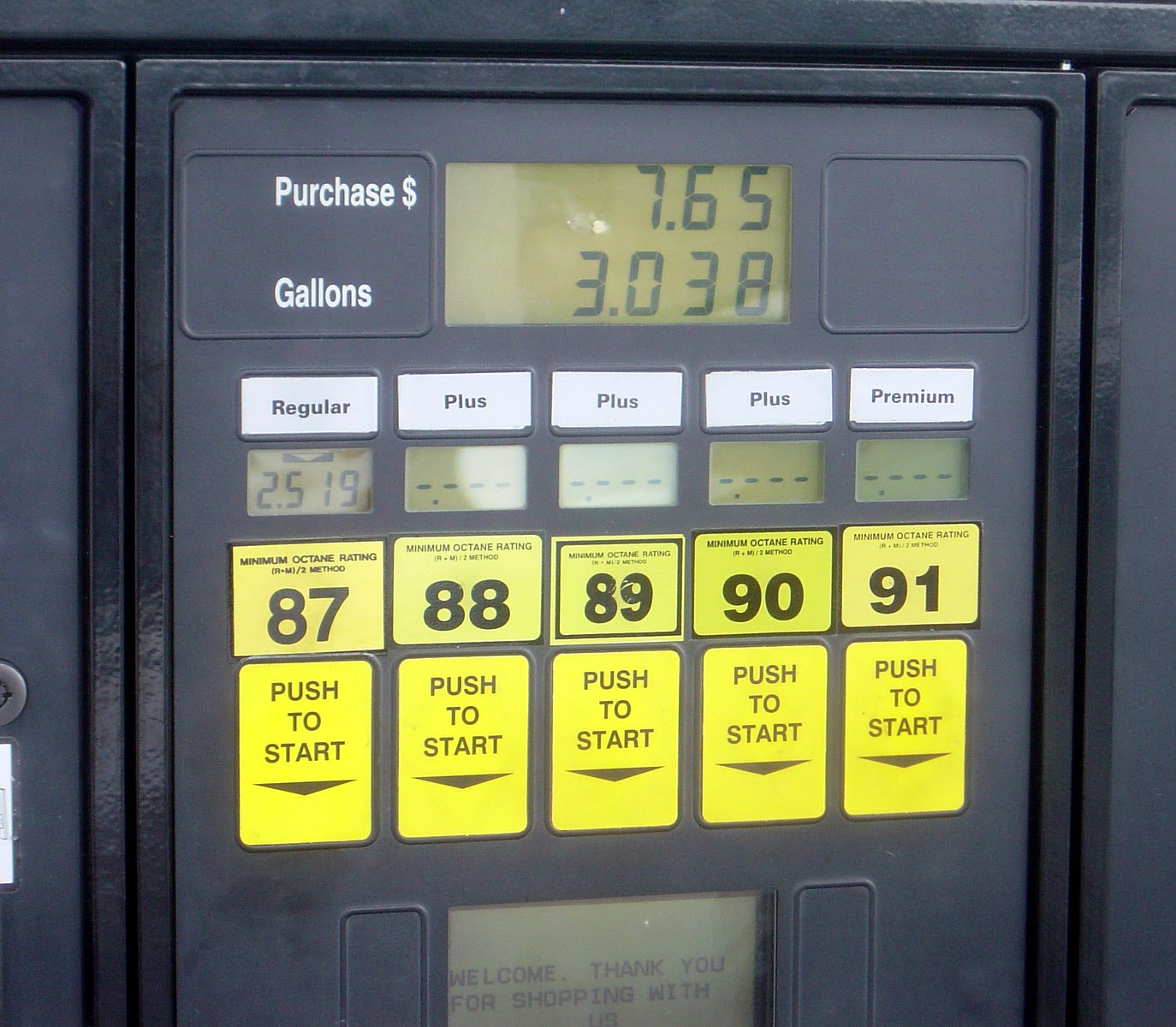87 vs 93 Octane Gas The Real Deal on Premium Fuel
Ever stood at the gas pump, staring at the octane options, feeling a pang of guilt for not splurging on the "good stuff"? You're not alone. The 87 vs. 93 octane debate is a constant source of confusion, and we're here to break it down.
Let's face it, fuel costs are constantly creeping upwards. Every penny counts, so understanding the true impact of octane ratings on your car's performance and wallet is more important than ever. Is that extra cost for premium fuel really worth it, or are you just throwing money away?
The essential difference between 87 and 93 octane boils down to resistance to knocking. Knocking, that unpleasant rattling sound coming from your engine, occurs when the air-fuel mixture in your cylinders ignites prematurely. Higher octane fuel can withstand higher compression before igniting, which is crucial for high-performance engines.
But what about regular cars? Most vehicles are designed to run perfectly fine on 87 octane. Unless your car's manufacturer specifically recommends higher octane fuel, you're likely not gaining any benefit from filling up with 93. In fact, using a higher octane than recommended can even lead to decreased performance and fuel economy in some cases.
So, is premium fuel a rip-off? Not necessarily. For high-performance engines with higher compression ratios, 93 octane is essential for optimal performance and preventing engine damage. But for the average driver, sticking with 87 octane is the smart, budget-friendly choice.
Historically, octane ratings have evolved alongside engine technology. As engines became more powerful and efficient, the need for higher octane fuels arose to prevent knocking and maximize performance. The difference between octane levels is measured by their resistance to premature detonation under pressure.
Understanding octane's importance is directly linked to understanding engine performance. Using the incorrect octane can lead to reduced power, decreased fuel efficiency, and even engine damage in the long run. Choosing the right octane, as recommended by your vehicle manufacturer, is key to maintaining optimal engine health.
For example, a high-performance sports car might require 93 octane to achieve its advertised horsepower and torque. Using 87 octane could result in knocking, reduced performance, and potentially damage to the engine. Conversely, using 93 octane in a standard sedan designed for 87 octane offers no benefits and might even negatively impact fuel economy.
Benefits of choosing the correct octane include: improved engine performance, better fuel efficiency, and prevention of engine damage. By following manufacturer recommendations, you can ensure your engine runs smoothly and efficiently.
Advantages and Disadvantages of Different Octane Levels
| Octane | Advantages | Disadvantages |
|---|---|---|
| 87 | Lower cost, suitable for most vehicles | Not ideal for high-performance engines |
| 93 | Prevents knocking in high-performance engines, maximizes performance | Higher cost, no benefit for most standard vehicles |
Best Practices:
1. Follow your owner's manual recommendations.
2. Avoid using higher octane than necessary.
3. If you hear knocking, try a higher octane.
4. Consider fuel additives if necessary.
5. Regularly maintain your engine.
Real-World Examples:
1. A turbocharged sports car requires 93 octane for optimal performance.
2. A standard sedan runs efficiently on 87 octane.
3. A truck towing a heavy load might benefit from higher octane to prevent knocking.
4. An older car with carbon buildup might experience knocking and require higher octane or engine cleaning.
5. A modern, fuel-efficient car is designed to run on 87 octane and won't see any benefit from higher octane fuel.
FAQ:
1. What is octane? Octane measures a fuel's resistance to knocking.
2. What happens if I use the wrong octane? You might experience decreased performance, reduced fuel economy, or engine damage.
3. Can I switch between octane levels? Yes, but use the recommended octane for your vehicle.
4. Is higher octane always better? No, only if your car requires it.
5. Does higher octane clean my engine? No, it only prevents knocking.
6. Can I mix octane levels? Yes, but the resulting octane will be an average of the two.
7. How do I know what octane my car needs? Check your owner's manual.
8. Will using premium gas improve my mileage? Not if your car is designed for regular gas.
Tips and Tricks:
Consult your owner's manual. This is the ultimate guide to your car's fuel requirements.
Understanding the difference between 87 and 93 octane is crucial for car owners. While the temptation to splurge on premium gas might seem appealing, it's often unnecessary and wasteful for the majority of vehicles. By adhering to your manufacturer's recommendations, you can optimize your car's performance, maintain engine health, and save money at the pump. The key takeaway is to use the right fuel for your car, not necessarily the most expensive one. Don't fall prey to marketing hype; consult your owner's manual and make informed decisions about your fuel choices. By following these guidelines, you'll ensure your engine runs smoothly and efficiently for years to come, all while saving money in the long run. Choosing the right fuel isn't just about performance; it's about responsible car ownership and making smart financial decisions.
The enchanting realm of fantasy male outfit design
The chayanne buenos dias meme a deep dive into the viral phenomenon
Liga mx in fifa 23 unlocking mexican football












